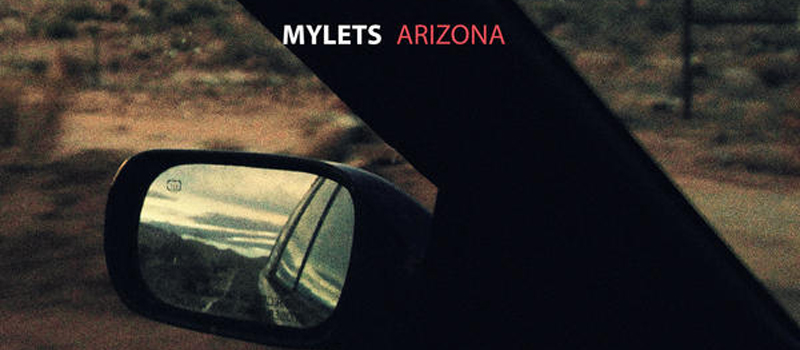Papa M ringmaster David Pajo covers some familiar ground, both literally and musically speaking, on the second installment in his “audio tour diary,” titled – appropriately enough – Two.
As a critic, I suppose one is supposed to say this is a detriment, the sign of a musician who’s spinning his wheels for the crowd instead of launching into new, expansive directions. Right? Well, as a music lover, I’ll be honest: Pajo could keep writing and recording songs exactly like the three on this EP for decades and I would still anxiously hunt them all down.
Two begins just as its predecessor did a few months before it, right in Chicago, with Pajo again kicking off with a number that mixes folksy guitar with passionate whispered vocals, strange synth accents and occasional production tricks. While “Flashlight Tornado” – the song that opened One – was a catchy, fingerpicked acoustic song with solid refrains, Two‘s “Black is the Color” hits its highest points in its closing moments. There, over layers of delicate acoustic guitar and synth washes, Pajo multi-tracks himself all over the place, simultaneously singing the song’s title and delivering it in a smoky deadpan.
The second track on the EP finds Pajo in Bloomington, Indiana, where he gets some support on cello and violin from Molly Kien and Maggie Polk, respectively.
“Mary Was the Kind” – like “Beloved Woman,” from One – is an atmospheric affair, with digital delay placed on Pajo’s harmonica and voice lending a kind of psychedelic tone. The song’s chorus – complete with a sugary sweet refrain of strings, guitar, and bass – is alone worth the five dollars you’ll dish out for the disc.
“World’s Greatest Sin” may be the folksiest song on the EP, with Pajo’s acoustic guitar sounding much the way it did on the Papa M Sings EP. Of note is a bouncy, slightly muffled bass line, the type of light but plucky presence you wouldn’t be surprised to hear in some pop song from a 1960s act like The Lovin’ Spoonful. Of more note, though, is a hidden song, buried roughly 12 minutes into the third track on the CD. As a kind of gentle denouement, Pajo offers the untitled guitar gem in all its shimmering and fragile glory. Running for about two minutes, the song is mainly a series of tender electric guitar bridges combined with softly soaring strings, possibly recorded with Kien and Polk in Bloomington, Indiana.
Whether it’s a rough draft preview of something from Three or Pajo just playing with the long-playing format of the compact disc, it doesn’t quite matter. Like the majority of the two EPs in Pajo’s tour diary, it’s just a little reminder of how good he is at doing what he does and he sorely we need him to put aside the ashes of Zwan and move on the follow-up to Whatever Mortal. – Delusions of Adequacy, Aug. 11, 2003
-30-




